-
 Bitcoin
Bitcoin $114400
0.68% -
 Ethereum
Ethereum $3550
2.48% -
 XRP
XRP $3.001
4.99% -
 Tether USDt
Tether USDt $0.9999
0.01% -
 BNB
BNB $757.6
1.46% -
 Solana
Solana $162.9
1.07% -
 USDC
USDC $0.9998
0.00% -
 TRON
TRON $0.3294
0.91% -
 Dogecoin
Dogecoin $0.2015
2.46% -
 Cardano
Cardano $0.7379
2.01% -
 Stellar
Stellar $0.4141
8.83% -
 Hyperliquid
Hyperliquid $37.83
-1.91% -
 Sui
Sui $3.454
0.76% -
 Chainlink
Chainlink $16.62
3.53% -
 Bitcoin Cash
Bitcoin Cash $554.6
2.84% -
 Hedera
Hedera $0.2486
3.91% -
 Ethena USDe
Ethena USDe $1.001
0.00% -
 Avalanche
Avalanche $21.95
3.34% -
 Toncoin
Toncoin $3.563
-2.85% -
 Litecoin
Litecoin $112.7
2.65% -
 UNUS SED LEO
UNUS SED LEO $8.977
0.13% -
 Shiba Inu
Shiba Inu $0.00001232
1.85% -
 Uniswap
Uniswap $9.319
2.93% -
 Polkadot
Polkadot $3.632
1.38% -
 Monero
Monero $307.2
2.36% -
 Dai
Dai $0.9997
-0.03% -
 Bitget Token
Bitget Token $4.340
0.91% -
 Pepe
Pepe $0.00001048
1.07% -
 Cronos
Cronos $0.1348
3.26% -
 Aave
Aave $261.5
1.93%
Can NFT be used to trade in-game items?
NFTs offer secure, verifiable ownership of in-game items, enabling trading outside game ecosystems; however, scalability, regulation, and user experience remain key challenges to wider adoption.
Mar 24, 2025 at 03:21 pm
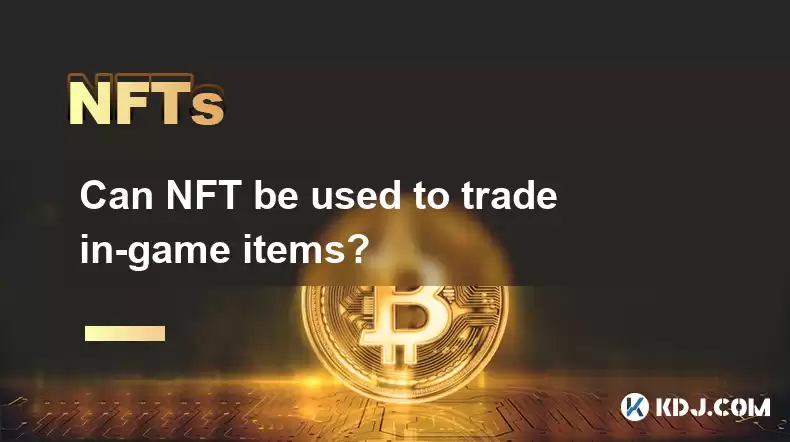
Key Points:
- NFTs' unique properties make them suitable for representing ownership of in-game items.
- Several successful examples demonstrate the integration of NFTs into gaming.
- Challenges remain regarding scalability, regulation, and user experience.
- Different blockchain platforms offer varying levels of support for in-game NFT transactions.
- The future of in-game NFT trading hinges on addressing these challenges and fostering wider adoption.
Can NFT be used to trade in-game items?
Yes, NFTs (Non-Fungible Tokens) can be used to trade in-game items. NFTs provide a secure and verifiable way to represent ownership of unique digital assets, making them ideally suited for in-game items. Unlike traditional in-game items, which are often tied to a specific game client and controlled by the game developer, NFTs exist on a blockchain, granting players true ownership. This ownership can be proven and transferred on the blockchain, allowing for genuine trading and exchange outside the game's ecosystem.
The technology behind NFTs allows for the creation of unique, verifiable digital assets. Each in-game item represented as an NFT has a unique identifier on the blockchain, preventing duplication and counterfeiting. This unique identifier is linked to metadata describing the item's attributes, rarity, and history, adding value and authenticity. This verifiable ownership is a significant improvement over traditional in-game item systems, where ownership is often limited to the game platform.
Several successful examples demonstrate the integration of NFTs into gaming. Games like Axie Infinity and Decentraland have successfully implemented NFT-based in-game items, creating thriving economies where players can buy, sell, and trade virtual assets. These games have proven the viability of using NFTs for in-game trading, demonstrating a potential for increased player engagement and revenue generation for developers.
However, the use of NFTs in gaming is not without its challenges. Scalability is a major concern, as the blockchain needs to handle a large number of transactions efficiently. High gas fees on some blockchains can make transactions expensive and prohibitive for casual players. Regulatory uncertainty is another challenge, as the legal framework surrounding NFTs is still evolving. Moreover, the user experience can be complex for players unfamiliar with blockchain technology. Many players might find the process of setting up a cryptocurrency wallet and interacting with a blockchain too cumbersome.
Different blockchain platforms offer varying levels of support for in-game NFT transactions. Ethereum, one of the most popular blockchains for NFTs, has a large and active community, but it is often plagued by high transaction fees. Other blockchains, such as Solana, WAX, and Flow, are designed to offer faster and cheaper transactions, making them potentially more suitable for in-game NFT trading. The choice of blockchain depends on the specific needs of the game and its players.
The security of NFT transactions is paramount. Blockchain technology provides a high level of security, making it difficult for fraudsters to counterfeit or manipulate NFT ownership. However, players still need to be cautious and only trade on reputable marketplaces to avoid scams and phishing attacks. Educating players about the risks and best practices is crucial for ensuring a secure and trustworthy environment. This includes understanding the risks associated with smart contracts and the importance of using secure wallets.
The future of in-game NFT trading depends heavily on addressing these challenges. Improving scalability, reducing transaction fees, and simplifying the user experience are crucial for wider adoption. Clearer regulatory frameworks will also be essential for fostering a sustainable and legitimate NFT gaming ecosystem. As the technology matures and the regulatory landscape clarifies, the use of NFTs in gaming is likely to become more prevalent and integrated into mainstream gaming experiences.
The integration of NFTs into gaming is still in its early stages, but it holds immense potential for transforming the way players interact with games and their in-game assets. The ability to truly own and trade digital assets opens up new opportunities for player-driven economies, community building, and innovative game mechanics. However, careful consideration of the challenges and a focus on user experience will be vital to unlocking the full potential of this technology.
Frequently Asked Questions:
Q: Are all in-game NFTs the same?
A: No, in-game NFTs vary significantly depending on the game, the blockchain used, and the rarity of the item. Some NFTs might represent unique cosmetic items, while others grant special abilities or access to exclusive content within the game. Their value is also determined by market demand and in-game utility.
Q: How do I buy and sell in-game NFTs?
A: You'll typically need a cryptocurrency wallet compatible with the blockchain used by the game. Then, you can purchase NFTs through in-game marketplaces or third-party platforms that specialize in NFT trading. The process usually involves purchasing cryptocurrency and then using it to acquire the desired NFT.
Q: What are the risks associated with trading in-game NFTs?
A: Risks include the volatility of cryptocurrency markets, the potential for scams and phishing attacks, and the loss of your NFTs due to security breaches or errors in your wallet. It's crucial to research carefully, use reputable marketplaces, and secure your wallet properly.
Q: Are in-game NFT transactions always cheap?
A: No, transaction fees (gas fees) can vary significantly depending on the blockchain used and network congestion. Some blockchains have lower fees than others, but high demand can still lead to increased costs.
Q: Can I use my in-game NFTs in different games?
A: Generally, no. NFTs are typically tied to the specific game they were created for. Interoperability between different games is a challenge that the industry is working to address, but it's not yet a common feature.
Disclaimer:info@kdj.com
The information provided is not trading advice. kdj.com does not assume any responsibility for any investments made based on the information provided in this article. Cryptocurrencies are highly volatile and it is highly recommended that you invest with caution after thorough research!
If you believe that the content used on this website infringes your copyright, please contact us immediately (info@kdj.com) and we will delete it promptly.
- Cryptocurrency, Altcoins, and Profit Potential: Navigating the Wild West
- 2025-08-04 14:50:11
- Blue Gold & Crypto: Investing Disruption in Precious Metals
- 2025-08-04 14:30:11
- Japan, Metaplanet, and Bitcoin Acquisition: A New Era of Corporate Treasury?
- 2025-08-04 14:30:11
- Coinbase's Buy Rating & Bitcoin's Bold Future: A Canaccord Genuity Perspective
- 2025-08-04 14:50:11
- Coinbase's Buy Rating Maintained by Rosenblatt Securities: A Deep Dive
- 2025-08-04 14:55:11
- Cryptos, Strategic Choices, High Returns: Navigating the Meme Coin Mania
- 2025-08-04 14:55:11
Related knowledge
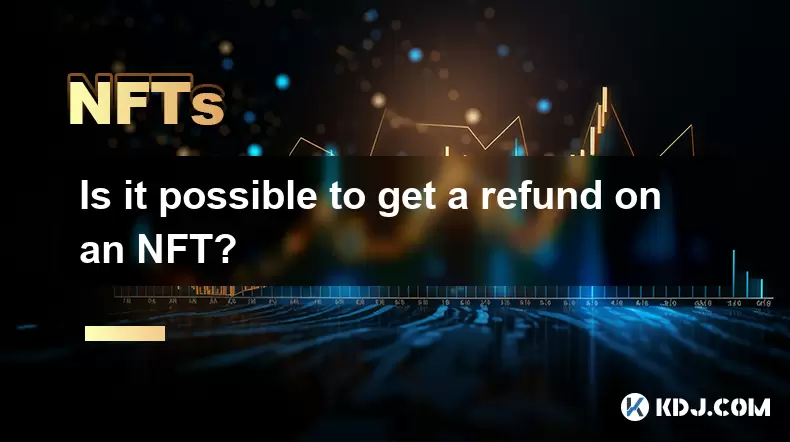
Is it possible to get a refund on an NFT?
Jul 21,2025 at 08:35pm
Understanding NFT Transactions and RefundsWhen you purchase an NFT (Non-Fungible Token), the transaction is typically recorded on a blockchain, making...
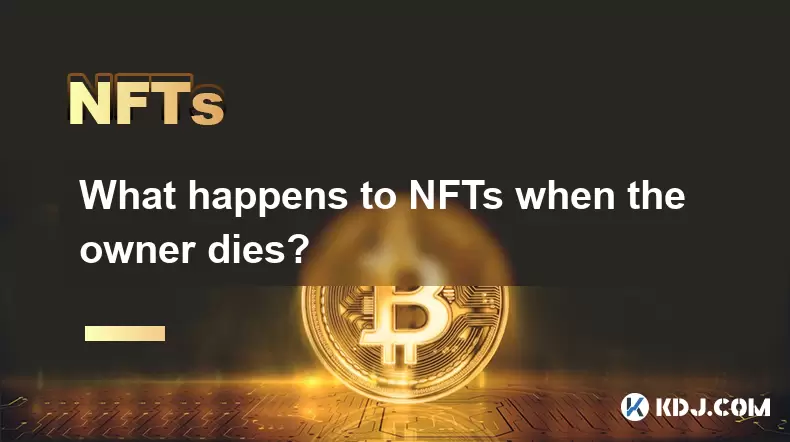
What happens to NFTs when the owner dies?
Jul 22,2025 at 02:43pm
Legal Ownership and Digital AssetsWhen an individual owns NFTs, the question of what happens to these assets upon their death is a pressing one. NFTs ...
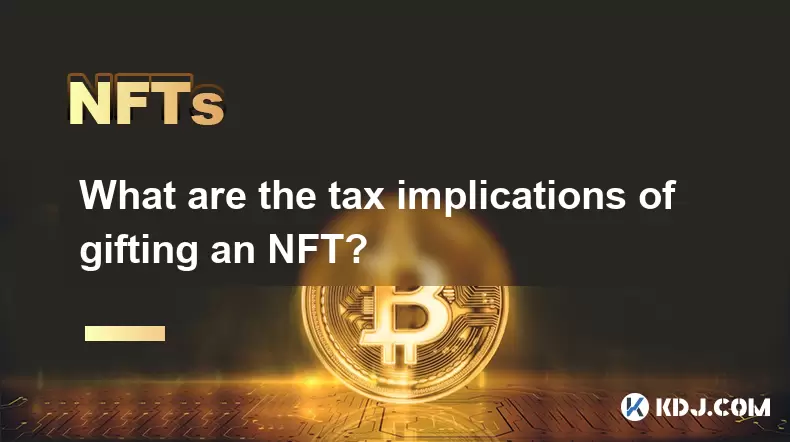
What are the tax implications of gifting an NFT?
Jul 19,2025 at 04:21am
Understanding the Basics of NFT GiftingGifting a Non-Fungible Token (NFT) involves transferring ownership from one individual to another without recei...
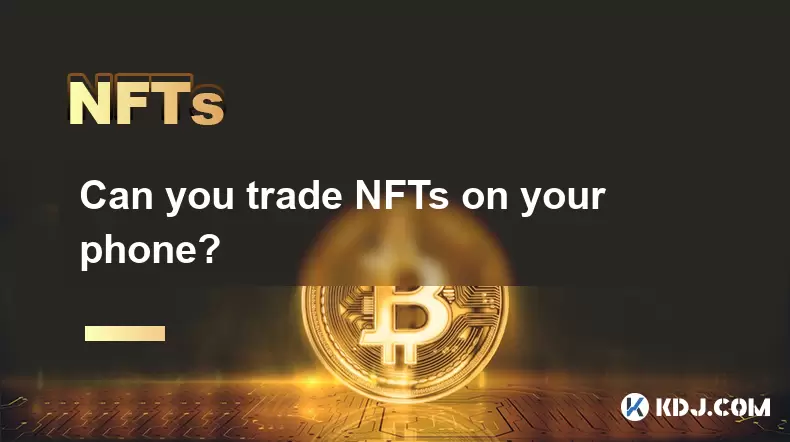
Can you trade NFTs on your phone?
Jul 18,2025 at 04:29am
Trading NFTs on Mobile DevicesYes, you can trade NFTs on your phone, and the process has become increasingly streamlined thanks to a variety of mobile...
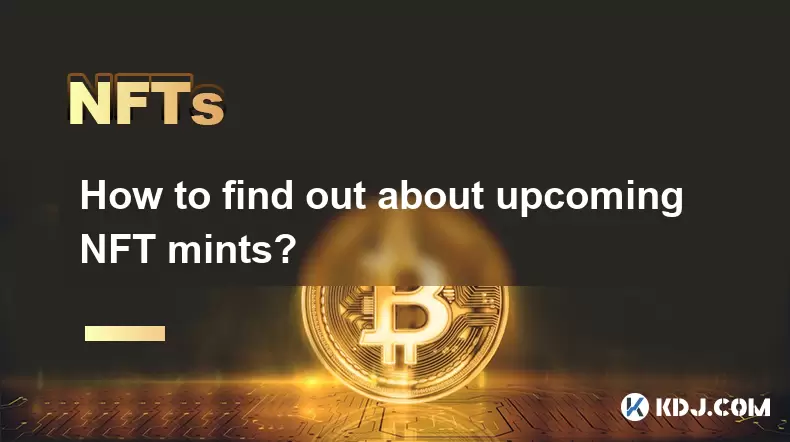
How to find out about upcoming NFT mints?
Jul 18,2025 at 11:50am
Exploring NFT Minting OpportunitiesUnderstanding the landscape of upcoming NFT mints is crucial for collectors, investors, and creators who wish to st...
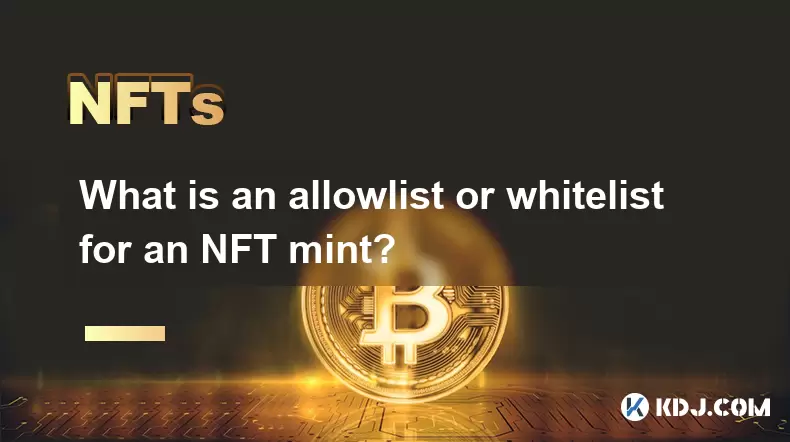
What is an allowlist or whitelist for an NFT mint?
Jul 20,2025 at 07:14pm
Understanding the Concept of an Allowlist for NFT MintingAn allowlist, also commonly referred to as a whitelist, is a mechanism used in the NFT mintin...

Is it possible to get a refund on an NFT?
Jul 21,2025 at 08:35pm
Understanding NFT Transactions and RefundsWhen you purchase an NFT (Non-Fungible Token), the transaction is typically recorded on a blockchain, making...

What happens to NFTs when the owner dies?
Jul 22,2025 at 02:43pm
Legal Ownership and Digital AssetsWhen an individual owns NFTs, the question of what happens to these assets upon their death is a pressing one. NFTs ...

What are the tax implications of gifting an NFT?
Jul 19,2025 at 04:21am
Understanding the Basics of NFT GiftingGifting a Non-Fungible Token (NFT) involves transferring ownership from one individual to another without recei...

Can you trade NFTs on your phone?
Jul 18,2025 at 04:29am
Trading NFTs on Mobile DevicesYes, you can trade NFTs on your phone, and the process has become increasingly streamlined thanks to a variety of mobile...

How to find out about upcoming NFT mints?
Jul 18,2025 at 11:50am
Exploring NFT Minting OpportunitiesUnderstanding the landscape of upcoming NFT mints is crucial for collectors, investors, and creators who wish to st...

What is an allowlist or whitelist for an NFT mint?
Jul 20,2025 at 07:14pm
Understanding the Concept of an Allowlist for NFT MintingAn allowlist, also commonly referred to as a whitelist, is a mechanism used in the NFT mintin...
See all articles

























































































